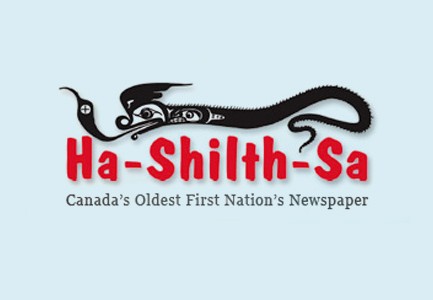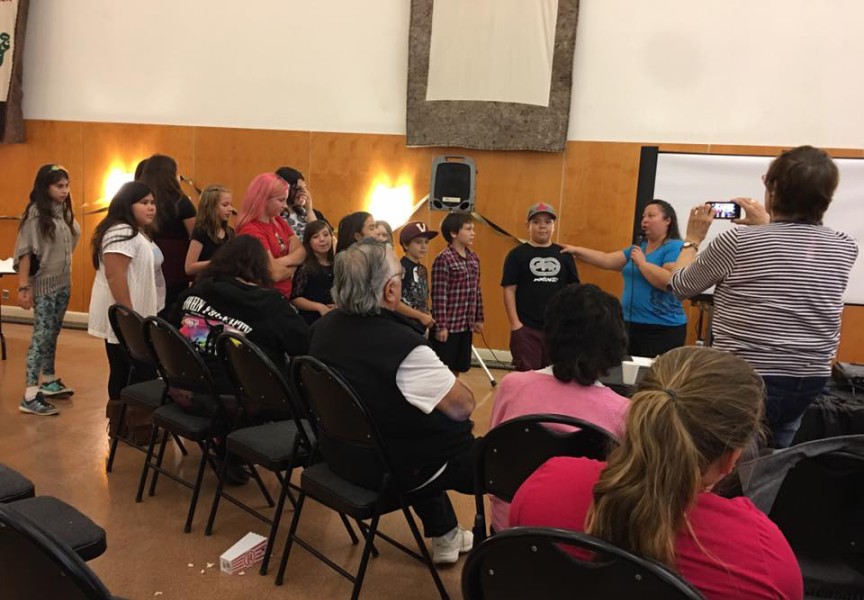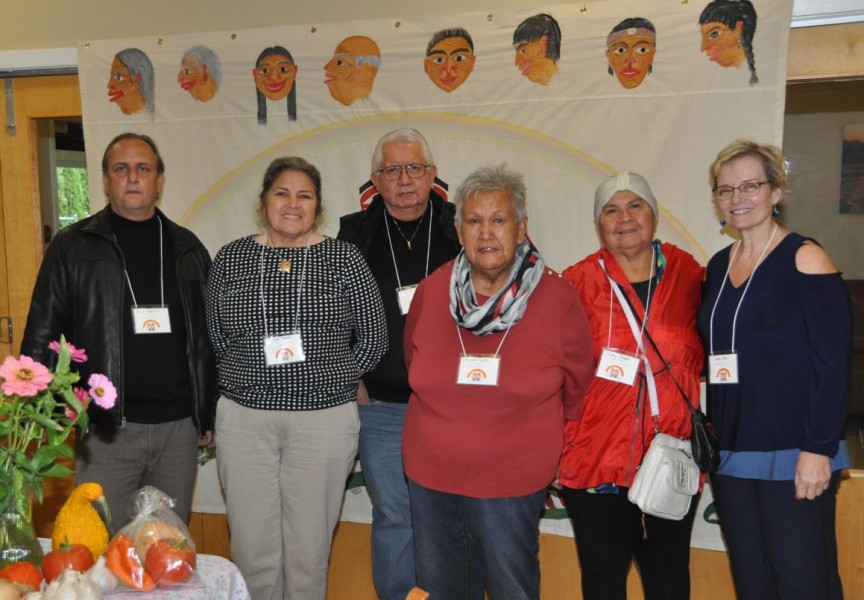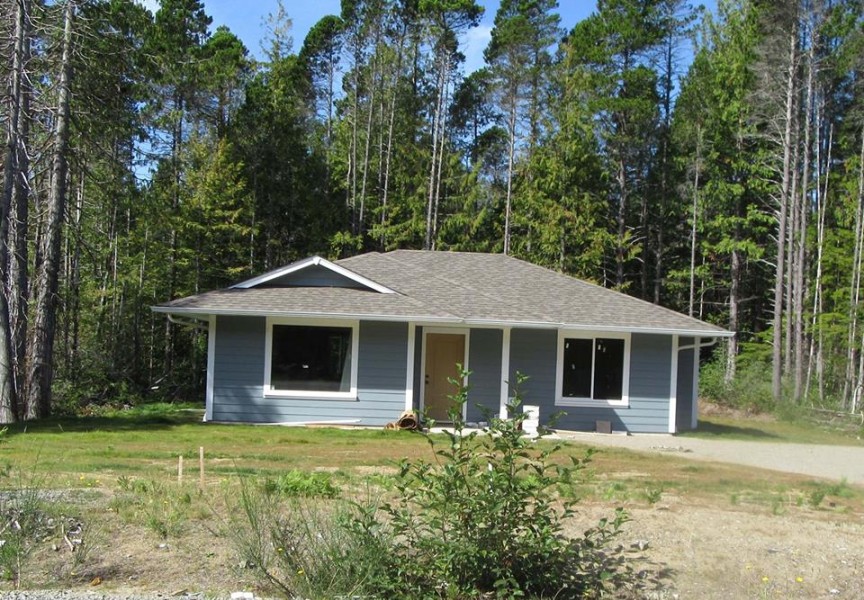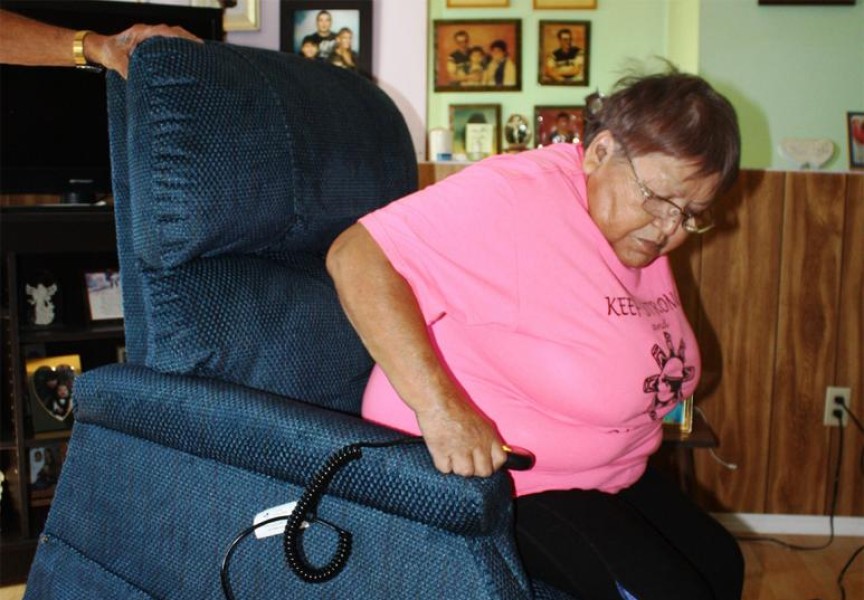“There will never be a mine in Clayoquot Sound,” said Nitanis Dejarlias. That was the general consensus of the group of about 50 people who attended an event sponsored by the Friends of Clayoquot Sound (FOCS), an environmental group based in Tofino.
The evening, held Feb. 26 in Tofino and organized by FOCS Campaigner Emery Hartley, was designed to raise awareness and funds for Tla-o-qui-aht’s Tribal Park concept. It was called Tsilhqot’in, Mining, and Tribal Parks; Implications for the West Coast.
In 2014, Tla-o-qui-aht declared that their entire territory would be a tribal park. It is a concept that they believe will conserve the environment and resources for generations to come.
For Tla-o-qui-aht it means that unsustainable resource extraction activities like mining and industrial logging will not be permitted, but sustainable industries like tourism and micro hydro projects are allowed.
Both Tla-o-qui-aht and FOCS oppose the reopening of Fandora Gold Mine by Imperial Metals, located within Tla-o-qui-aht territory.
Hartley said FOCS organized the event as part of their mining campaign and to support Tla-o-qui-aht in its efforts to get a moratorium on mining in their territory. Event-goers were asked to make donations; all proceeds would go to Tla-o-qui-aht Tribal Parks.
FOCS invited speakers that would talk about Aboriginal Rights and Title as it relates to industry, the Tla-o-qui-aht Tribal Parks concept and the Mount Polley disaster.
Tsimka Martin opened the event by welcoming guests to unceded Tla-o-qui-aht territory. Drew Mildon, a lawyer with law firm Woodward and Company, explained what the recent aboriginal Title case win by the Tsilhqot’in could mean for other nations.
Mildon is working with the Tsilhqot’in people in their fight on aboriginal rights and title. They have fought the government of Canada in court over title cases and won. They also have designated tribal parks in their territories.
Mildon talked about how Ahousaht and Tla-o-qui-aht fought to protect Meares Island from industrial logging back in the 1980s. Their resistance against the government and logging companies resulted in a moratorium on logging Meares and, in early April 1985, led to the beginning of treaty negotiations.
The Tsilhqot’in began their legal battle to stop logging in their territory in 1989 and was the first to prove in court that aboriginal Title exists.
With that accomplished the courts determined that government has an obligation to consult with First Nations in a meaningful way when it comes to land and resource use in their territories.
Mildon warned that there are those that try to find a way around meaningful consultation and it can be a complex legal game with the government having deeper pockets than say, a small first nation, for example.
“My advice is that you watch Blue Gold on Vimeo; it’s about the Tsilhqot’in case,” said Mildon.
Tofino Mayor Josie Osborne said the Tsilhqot’in case may not be a game changer but it certainly is a rule changer. Local government, she said, has power but does not have the kind that would allow them to act in the same capacity as provincial and federal government when it comes to consulting local first nations.
The onus, Osborne said, is on provincial and federal governments to consult with first nations.
Tofino boundaries, according to Oborne, lie entirely within Tla-o-qui-aht territory. “Municipal government has a duty to come to the table with Tla-o-qui-aht on matters of mutual interest,” Osborne said. It’s about cooperation and collaboration as we move forward, she added.
Desjarlais is a Cree woman married into Nuu-chah-nulth-aht. She was raised fighting for aboriginal rights and working to protect the environment.
She described early life with her mother, who is from the Fort McMurray area.
In summer 2014, Desjarlais was visiting her homeland when she heard about the Mount Polley disaster. The story was that a tailings pond at an Imperial Metals mining operation in central British Columbia had collapsed, sending a massive torrent of toxic materials into creeks, rivers and ponds in one of the worst environmental disasters in Canadian history.
With camera in hand, Desjarlais went to support the people and document what had happened. From what everyone was saying, it was bad, really bad, said Desjarlais.
The elders, she said, told the people to build a fire and pray for the land.
When they went to view the destruction they felt fear. “The creek that was maybe six feet across, so small you could jump across, was gone,” said Desjarlais.
When the wall of the tailings pond collapsed, an immense flood of water washed down the mountain into the creeks and river. The force and quantity of tailings water scrubbed away the creeks leaving behind wide tracks of rock, gravel and silt.
A group of people went to the site to record the damage and to offer medicine to pray. “People were scared,” said Desjarlais, adding they were afraid to breathe the air, to touch the water or to eat the fish.
“Something felt off. You could feel it in the air,” she said.
“Imperial Metals will never set foot in Clayoquot Sound,” she vowed, adding that there’s no such thing as sustainable mining.
She hinted that the same thing could easily happen here if there were tailings ponds. “We had record rainfall and flooding a few months ago and there was an earthquake in January,” she reminded the audience.
“We need to shift gears as human beings and change how we are relating to our planet,” she concluded.
Joe Martin, Tla-o-qui-aht artist and Tribal Parks guardian, said that it was 1986 when Tla-o-qui-aht first declared Meares Island a tribal park. Today it remains protected from logging and is a tourist attraction for its giant cedars.
He also talked about first nations teachings and the laws of nature. He said he was raised to respect nature and take only what he needs.
Through the tribal parks concept Tla-o-qui-aht will protect their territory, something they say has been under assault by past government policy and by industry.
“We see strength and value in a healthy ecosystem and we believe a healthy ecosystem will build a strong, local economy,” said Tla-o-qui-aht’s Terry Dorward.
“If you take care of her, Mother Nature will provide for your needs, but not for your greed,” said Martin.

